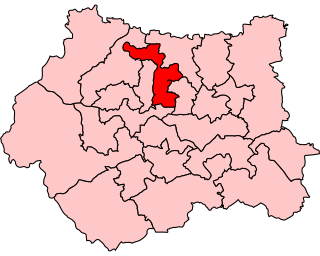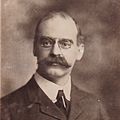
Great Yarmouth is a constituency represented in the House of Commons of the Parliament of the United Kingdom since the 2010 general election by Sir Brandon Lewis, a Conservative.

Upminster was a constituency of the House of Commons in east London, which returned one Member of Parliament (MP) to the House of Commons of the Parliament of the United Kingdom, elected by the first-past-the-post voting system. It was created for the 1974 general election, and abolished for the 2010 general election.

St Albans is a constituency represented in the House of Commons of the UK Parliament since 2019 by Daisy Cooper, a Liberal Democrat.

Birmingham Edgbaston is a constituency, represented in the House of Commons of the UK Parliament since 2017 by Preet Gill, a Labour Co-op MP.

Bolton West is a constituency represented in the House of Commons of the UK Parliament since 2015 by Chris Green, a Conservative.

Makerfield is a constituency represented in the House of Commons of the UK Parliament since 2010 by Yvonne Fovargue of the Labour Party.

Wythenshawe and Sale East is a parliamentary constituency in the city of Manchester and the borough of Trafford. It returns one Member of Parliament (MP) to the House of Commons of the Parliament of the United Kingdom, elected by the first past the post system.

South Shields is a borough constituency represented in the House of Commons of the Parliament of the United Kingdom. It elects one Member of Parliament (MP) by the first past the post system of election. It has been represented by Emma Lewell-Buck of the Labour Party since 2013.

Dewsbury is a constituency created in 1868. This seat is represented in the House of Commons of the United Kingdom Parliament since 2019 by Mark Eastwood of the Conservative Party.

Bradford North was a borough constituency represented in the House of Commons of the Parliament of the United Kingdom. Until it was abolished for the 2010 general election, it elected one Member of Parliament (MP) by the first past the post system of election.

Pudsey is a constituency represented in the House of Commons of the UK Parliament since 2010 by Stuart Andrew, a Conservative.

Birmingham Hall Green is a parliamentary constituency in the city of Birmingham, which has been represented in the House of Commons of the UK Parliament since 2019 by Tahir Ali of the Labour Party.

Birmingham Perry Barr is a constituency in the West Midlands, represented in the House of Commons of the UK Parliament since 2001 by Khalid Mahmood of the Labour Party.

Dagenham was a borough constituency represented in the House of Commons of the UK Parliament that elected one Member of Parliament (MP) by the first past the post system of election. It was replaced at the 2010 general election largely by Dagenham and Rainham.

Putney is a constituency created in 1918. It is currently represented in the House of Commons of the UK Parliament since 2019 by Fleur Anderson of the Labour Party. Putney was the only seat that Labour gained during the 2019 general election.

Witney is a county constituency in Oxfordshire represented in the House of Commons of the Parliament of the United Kingdom since 2016 by Robert Courts of the Conservative Party. It elects one Member of Parliament by the first-past-the-post system of election, and was created for the 1983 general election.

Beaconsfield is a constituency in Buckinghamshire represented in the House of Commons of the UK Parliament since 2019 by Joy Morrissey of the Conservative Party. She succeeded Independent and former Conservative Dominic Grieve, whom she defeated following his suspension from the party. The constituency was established for the February 1974 general election.

Gillingham was a constituency represented in the House of Commons of the Parliament of the United Kingdom. It elected one Member of Parliament (MP) by the first past the post system of election.
Glasgow Hillhead was a parliamentary constituency represented in the House of Commons of the Parliament of the United Kingdom from 1918 until 1997. It elected one Member of Parliament (MP) using the first-past-the-post voting system.

Rutherglen was a burgh constituency represented in the House of Commons of the Parliament of the United Kingdom from 1918 until 2005. From 2005, most of the area is represented by Rutherglen and Hamilton West, while a small portion is now in Glasgow Central and Glasgow South.


























